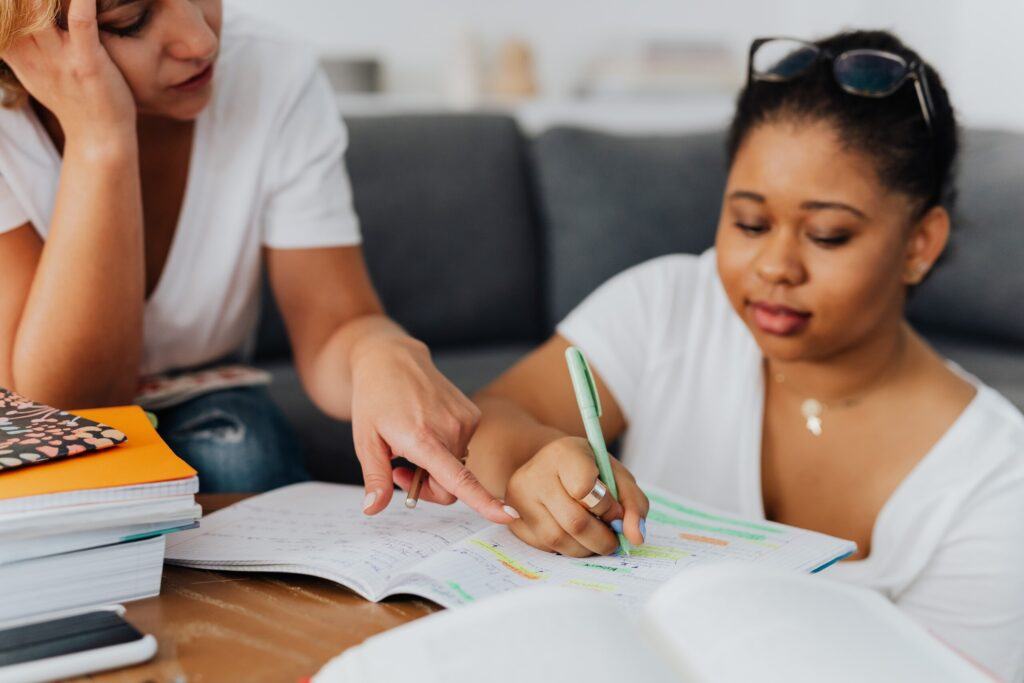The Difference Between Alone Time and Loneliness
- Category: Relationships
- June 13, 2022
Would you consider yourself an extrovert or an introvert? This is a question that you may get asked often, and the answer to it might immediately come to your mind. If you constantly seek out social scenes and consider yourself a social butterfly, you’ll probably identify as an extrovert. On the other hand, if you prefer staying inside and taking time to yourself to do things you enjoy, such as reading, watching your favorite shows, or any other independent hobbies, you’ll probably consider yourself an introvert.
Have you ever considered why you may partake in one more than the other? Specifically focusing on introverts, it is perfectly fine to want to spend time alone and can even be a healthy way to practice self-care. However, this can easily become an unhealthy way of living if your reason for doing so is solely based on avoidance.
What Are You Hiding From?
Avoidance is almost like a game of hide-and-go-seek; you try to get as far away from the threat and hope that it never finds and catches you. The only difference between this children’s game and reality is that when you avoid it, you may not even be aware that you are doing so consciously. This is because you’ve purposely kept yourself busy to prevent coming face to face with the problem. As time passes, you may not even realize it anymore.
Subconscious Level of Avoidance
This subconscious level of avoidance can be hard to identify. However, there are questions you can ask yourself to determine if the time you spend alone is out of entertainment or if you are avoiding something.
Are You Procrastinating?
We tend to procrastinate when we find a task to be difficult, unpleasant, or boring. Rather than relieving these stressful tasks, procrastination does the opposite and can enhance the problem further.
Do You Purposely Avoid Facing Problems or Issues?
It could very well be that you are aware of an issue going on in your life but deliberately choose to avoid it by partaking in alternative activities. Having the option to avoid can cause more stress and worrying as you are aware you’re in control of the situation.
Do You Feel Unproductive?
When avoiding a situation, you may feel an inner tension of knowing that you should be completing something, yet you’re being counterproductive. This can greatly affect your emotions as productivity promotes a sense of well-being and purpose in life.
If you’ve checked off any of these questions, it may be time to sit down and think about what it is you’re avoiding. After doing so, thankfully, it is possible to tackle this situation to better your mental health so that your alone time can begin to benefit you to its maximum potential.
Using Your Alone Time to Better Yourself
If you find that your alone time’s purpose is to avoid situations in your life, it may be helpful to switch up your routine. Many activities promote self-healing and are just as enjoyable as other alone-time activities. Moreover, in doing this, you will begin to uncover whatever it is you’re avoiding in a safe and comfortable way to ultimately lead you to a happier and healthier state of mind.
Make To-Do Lists
Some things you can do to kickstart this journey is to start making to-do lists and accurately prioritizing things in your life that you know will help you feel more relaxed and relieved from stress. As a result, you’ll find that your alone time activities will become enjoyable and begin to benefit you during times when alone time is absolutely necessary.
When you do find yourself needing alone time, here are some hobbies that you can start incorporating into your routine:
- Journaling:This can help reduce stress and
while also finding motivation and inspiration for future life goals
- Spending time outdoors:Whether it’s hiking, going on a run, or visiting the park, being outdoors helps you improve yourself mentally while also increasing your
exposure which has great
- Improve relationships:Spending time around others can promote a great balance in your life alongside your alone time. You will start to feel a sense of fulfillment socially and mentally, making it easier to go about your daily life
- Mindfulness meditation:Mindfulness is a great practice to help you focus on the present. Such a practice enables you to process your thoughts as they happen, thus allowing you to identify thoughts and situations that may trigger stress and anxiety and therefore find a coping mechanism to combat the source of stress.



